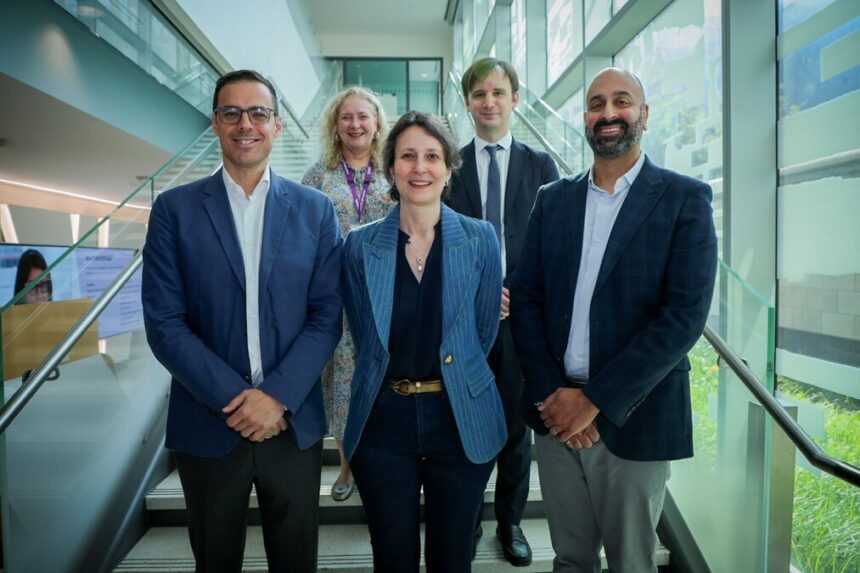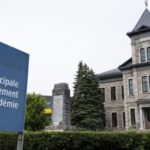I heard the delicate tapping of rain on my jacket hood as I stepped onto the University of Toronto campus last week. Inside the medical sciences building, the atmosphere contrasted sharply with the gray skies outside – researchers buzzing between labs, the palpable energy of minds at work. I’d come to learn more about Ontario’s latest commitment to brain health innovation, an announcement that had quietly made waves across Canada’s research community.
“We’ve been holding our breath for this,” Dr. Sarah Munroe told me, leaning against her lab doorway. A neurobiologist who studies early indicators of Alzheimer’s disease, she gestured to equipment that looked both cutting-edge and well-used. “Science isn’t just about discovery anymore. It’s about shared discovery – making sure the data reaches everyone who needs it.”
That philosophy sits at the heart of a significant funding announcement that promises to reshape Ontario’s brain research landscape. The Ontario Brain Institute (OBI) has secured over $7.7 million to advance open science platforms and brain health innovation across the province. The investment, announced through the Ontario Research Fund, aims to accelerate discoveries through collaborative data sharing and cutting-edge research infrastructure.
The funding arrives at a critical moment. With nearly 1 in 3 Canadians affected by a brain disorder during their lifetime, according to Brain Canada, the economic burden has reached approximately $61 billion annually. These conditions range from neurodevelopmental disorders to mental health challenges and neurodegenerative diseases – all becoming increasingly prevalent as our population ages.
What makes this particular funding unique is its emphasis on “open science” – a movement transforming how researchers approach complex health challenges. Rather than siloed research teams working independently, open science encourages transparent sharing of data, methods, and findings to accelerate discoveries.
“When I started in this field twenty years ago, we guarded our research like dragons with treasure,” Dr. Tom Kelleher, a neuroimaging specialist at Sunnybrook Research Institute, explained as he showed me the institute’s brain imaging facility. “Now we understand that the old model just isn’t efficient enough to solve problems like dementia or depression. We need everyone’s insights, everyone’s data.”
The OBI’s Brain-CODE platform exemplifies this shift. As one of Canada’s largest brain-focused data platforms, it securely houses information from over 20,000 research participants across Ontario. The platform brings together detailed clinical assessments, brain imaging, genomics, and even smartphone data to create one of the most comprehensive pictures of brain health ever assembled in Canada.
During my visit to the Ontario Science Centre later that afternoon, I watched as families interacted with a brain exhibit – children placing their hands on sensors that triggered different parts of a giant model brain to light up. A young girl squealed with delight when the motor cortex illuminated, while her mother read the explanatory text aloud.
The scene reminded me of another beneficiary of this funding: Science Everywhere, an initiative that brings neuroscience education to communities often underrepresented in both research participation and scientific careers. Their work reminds us that advancing brain health isn’t just about laboratory breakthroughs but also about engaging the public as partners in the scientific process.
“We can’t solve brain health challenges if our research doesn’t include everyone,” explained Dr. Anya Williams, Science Everywhere’s program director. “The more diverse our participant pool and our research workforce, the more applicable our findings will be for all Canadians.”
This inclusive approach extends to Brain-CODE’s focus on patient-centered research. For people like Michael Thornton, a 67-year-old living with Parkinson’s disease who I met through the Parkinson Society of Ontario, participation means both contributing to future treatments and potentially benefiting from personalized insights.
“I’ve donated my data, my time, even samples of my blood,” Thornton told me as we sat in his east Toronto apartment, surrounded by family photos and watercolor paintings – a hobby he’s maintained despite his tremors. “It gives me purpose knowing that even if treatments don’t come in time for me, they might for my grandchildren.”
The funding will support several interconnected initiatives beyond just data collection. According to the official announcement from the Ontario Research Fund, resources will enhance artificial intelligence capabilities to identify patterns across diverse datasets, expand mobile health technologies to capture real-world experiences, and strengthen privacy frameworks to protect sensitive health information.
Dr. Natasha Singh, lead data scientist at Brain-CODE, showed me algorithms that can analyze thousands of brain scans to identify subtle patterns invisible to the human eye. “We’re beginning to see commonalities between conditions we once thought were entirely separate,” she explained, pointing to overlapping signals between certain forms of depression and early cognitive changes.
These advances come with both promise and responsibility. While big data and AI offer unprecedented opportunities to understand the brain, they also raise important questions about privacy, consent, and data ownership. The OBI has been proactive in addressing these concerns, developing governance frameworks that put patients and participants at the center of decision-making.
As rain continued to fall outside the research center windows, I thought about the invisible networks forming across Ontario – not just of data and technology, but of people. Researchers, patients, families, and communities are increasingly connected through these initiatives, creating what Dr. Williams called “a living laboratory of collective intelligence.”
For Ontarians living with brain disorders and those who love them, this $7.7 million represents more than just funding. It represents hope that the complex puzzles of the brain might yield their secrets faster through cooperation than competition.
While waiting for my train home at Union Station, I received a text message from Dr. Munroe containing a quote she wanted to add: “This funding isn’t just about supporting research. It’s about supporting a research culture where sharing is valued over secrecy, where patients are partners rather than subjects, and where every discovery builds on what came before.“
As my train pulled away from Toronto, I watched raindrops race each other down my window, joining together as they fell. Much like those droplets, the individual streams of brain research across Ontario are now flowing together, becoming something greater than the sum of their parts.






